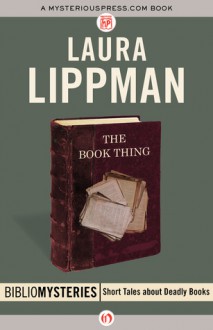
Sigh. What a great book this was. I was initially skeptical for how Lippman was doing this (interview style format sprinkled with third person POVs) but it really works. I also liked the conversation around motherhood. A mother killing their child is seen as being a horrific thing with a lot of people not even wanting to get to the point they can understand how that happens. I thought that everything really worked in this one. The characters, the writing, the flow, and even the slowly dawning reality of what type of mother Melisandre Harris Dawes was before and is now.
In "Hush Hush" Tess takes on a client that will challenge her ideas on motherhood and marriage. She's asked by her uncle (still funny)Tyner Gray to take on Melisandre as a client. Melisandre more than a decade earlier left her two month old daughter in her car in the summer. The baby died, and though the prosecution was eager to convict her, she was judged temporary insane. Giving up custody of her other two daughters, she has lived overseas. Now with her mother's death, she's returned to Baltimore to try to forge a relationship with her two surviving daughters, Alanna and Ruby. She plans on using a documentary that is being made about her as a way back into her daughters lives. But now there are questions resurfacing about what really happened ten years ago. With Tess dealing with increasingly threatening notes about how she is as a mother, her emotions are raw with dealing with Melisandre. Another murder though lives more questions with Tess trying to figure out who has killed before and who has killed now.
As Lippman delves, you have her focusing mostly on mothers who get rid of their children for another man, another future, or you have those who in the moment, were truly insane and did not have control over their own actions (like Andrea Yates). Since Tess is now a mother of a toddler and still living with Crow, she has a lot of questions about how she is as a mother, is she doing enough, is she not there for her daughter, and the case has her thinking on what makes a marriage too. There is mention of Medea in the book and in the author's afterword. I am definitely one of those mythology readers who thought Jason was terrible and Medea got a raw deal.
I loved we get more character POVs in this one, we have Tess's partner Sandy, her aunt, her client, Melisandre (or Missy), Melisandre's two daughters, the documentary filmmaker, Harmony, and even other characters via interview. Each person gives you a perspective not only on Melisandre, but on what is going in motion in the here and now. I liked the questions being asked about motherhood, why do women try to have it all. Part of you is going to despise Melisandre, but also like how she is clearly able to see the traps with motherhood and within her own marriage. And then you are going to despise her all over again.
What I thought was interesting about this one is that we get a special insight into Tyner and his relationship with Tess's aunt Kitty. And we even get insight into Kitty via another character as well. I think this book just pushes at preconceived notions about motherhood or marriage. We have Tyner saying that he never wanted to marry, but he met Kitty and that was it. When you see how he is linked to Melisandre though, you start to have a lot of questions. I thought it was great though. The whole book and characters were messy.
I thought the writing was great though the interview style format was a bit hard to get into at first. It works though and after I got to the ending, I went back to some parts of it. The flow worked really well too.
The ending was a shocker though. I loved the reveal about things before and now. I mean Lippman doesn't spell out things in the before for you, but you get enough to realize what really happened ten years ago (or at least I did).
The ending also leaves things slightly changed between Tess and Crow and their future.
I hope one day Lippman revisits this character/series. I love Tess and she's been a great character to follow in 2019.

 Log in with Facebook
Log in with Facebook 







